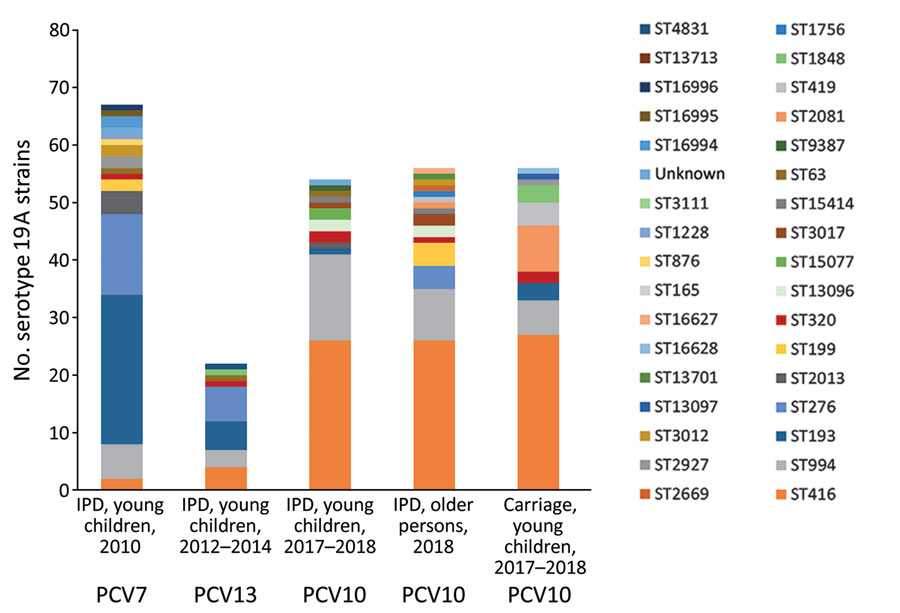Volume 28, Number 8—August 2022
Research
Characterization of Emerging Serotype 19A Pneumococcal Strains in Invasive Disease and Carriage, Belgium
Figure

Figure. Number and ST distribution of pneumococcal serotype 19A strains isolated from invasive disease and carriage, Belgium. Shown are IPD cases in young children during 2010, 2012–2014, and 2017–2018; serotype 19A strains isolated from IPD cases in older persons during 2018; and serotype 19A strains carried by children during 2017–2018. Different colors indicate different STs. IPD, invasive pneumococcal disease; PCV, pneumococcal conjugate vaccine; ST, sequence type.
Page created: May 22, 2022
Page updated: July 20, 2022
Page reviewed: July 20, 2022
The conclusions, findings, and opinions expressed by authors contributing to this journal do not necessarily reflect the official position of the U.S. Department of Health and Human Services, the Public Health Service, the Centers for Disease Control and Prevention, or the authors' affiliated institutions. Use of trade names is for identification only and does not imply endorsement by any of the groups named above.